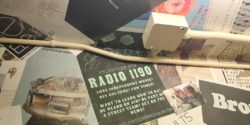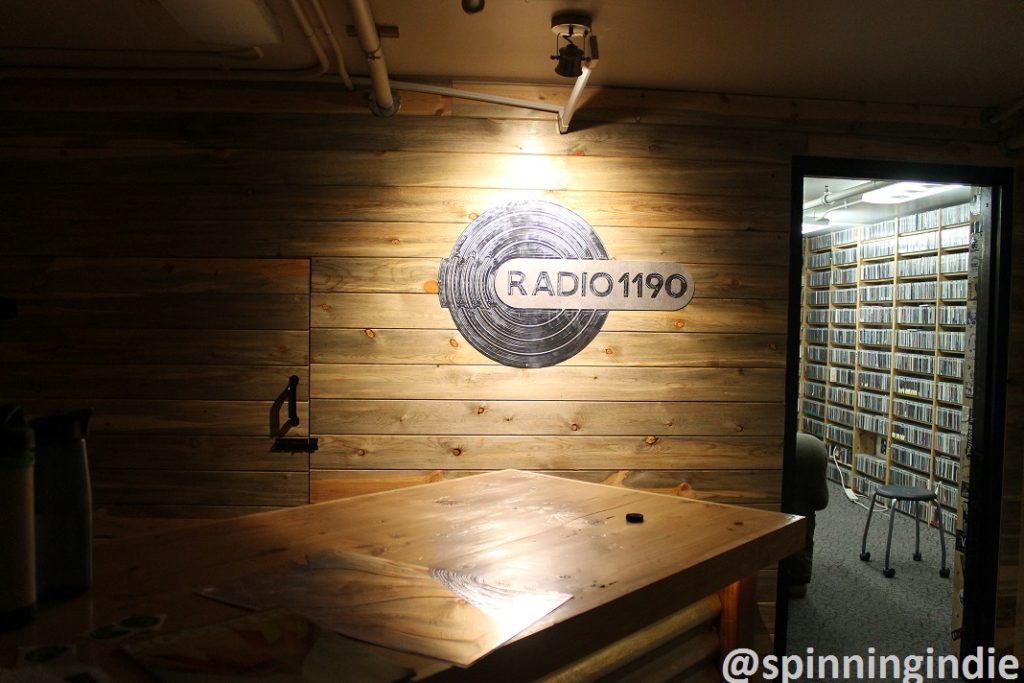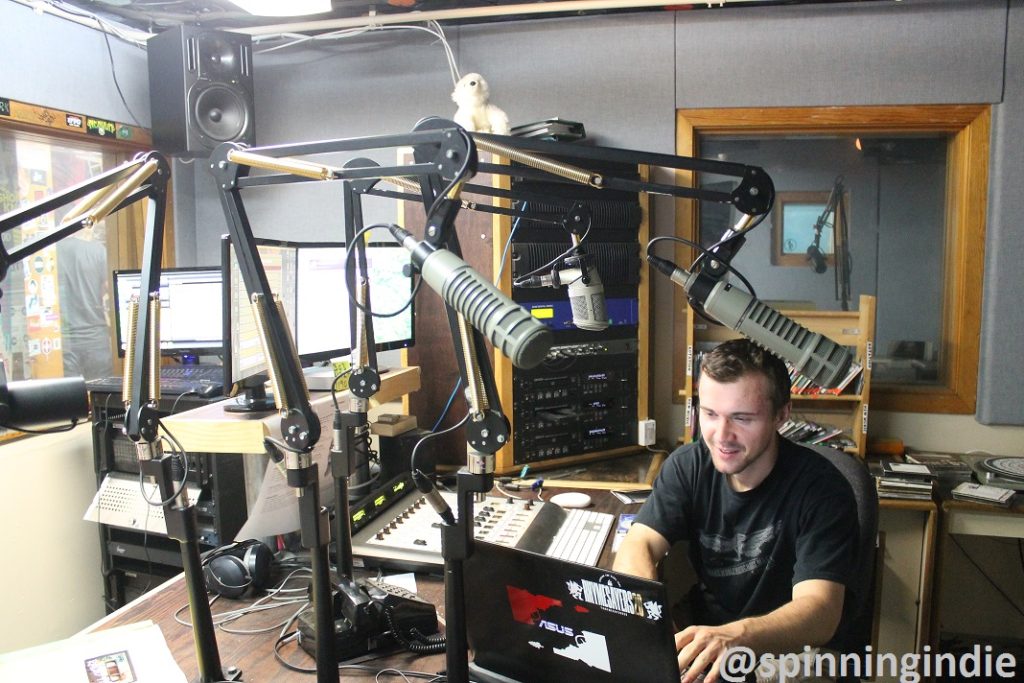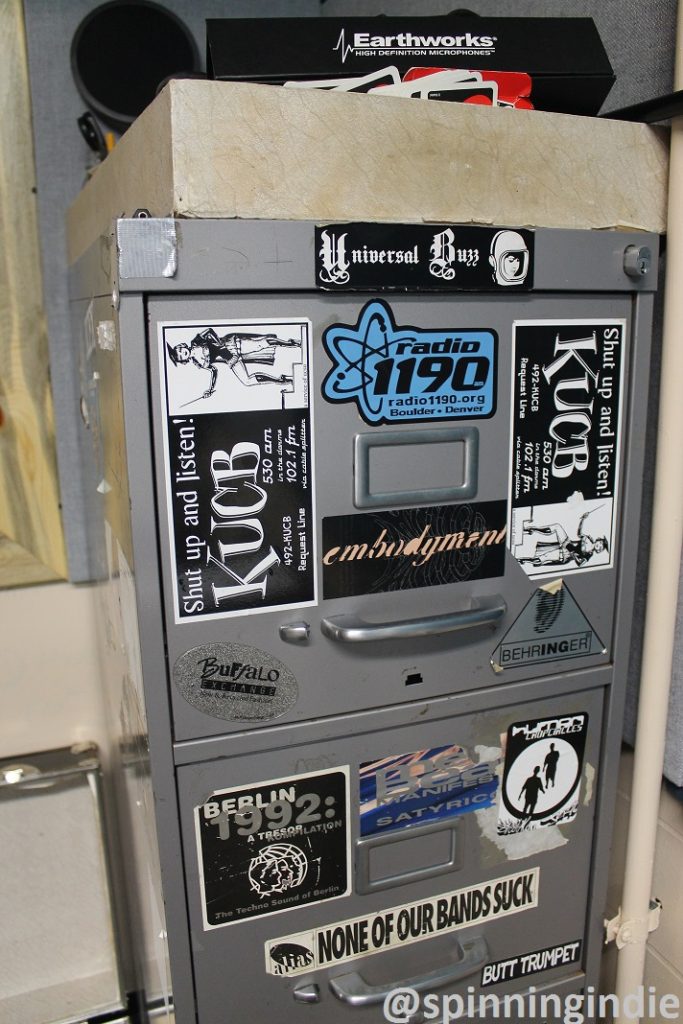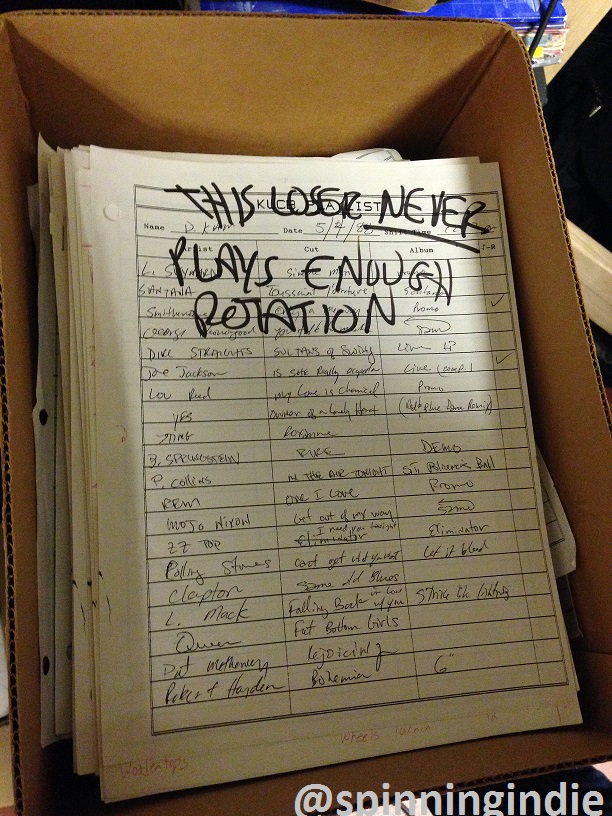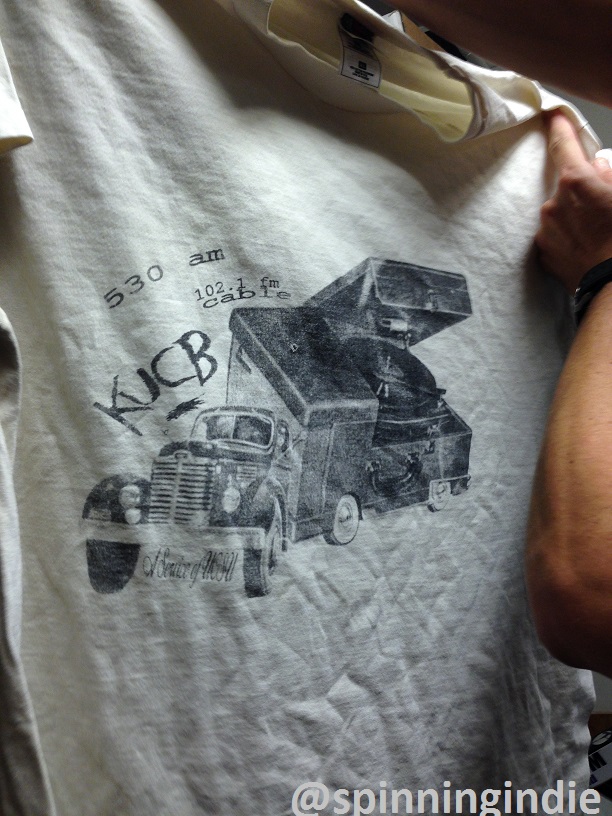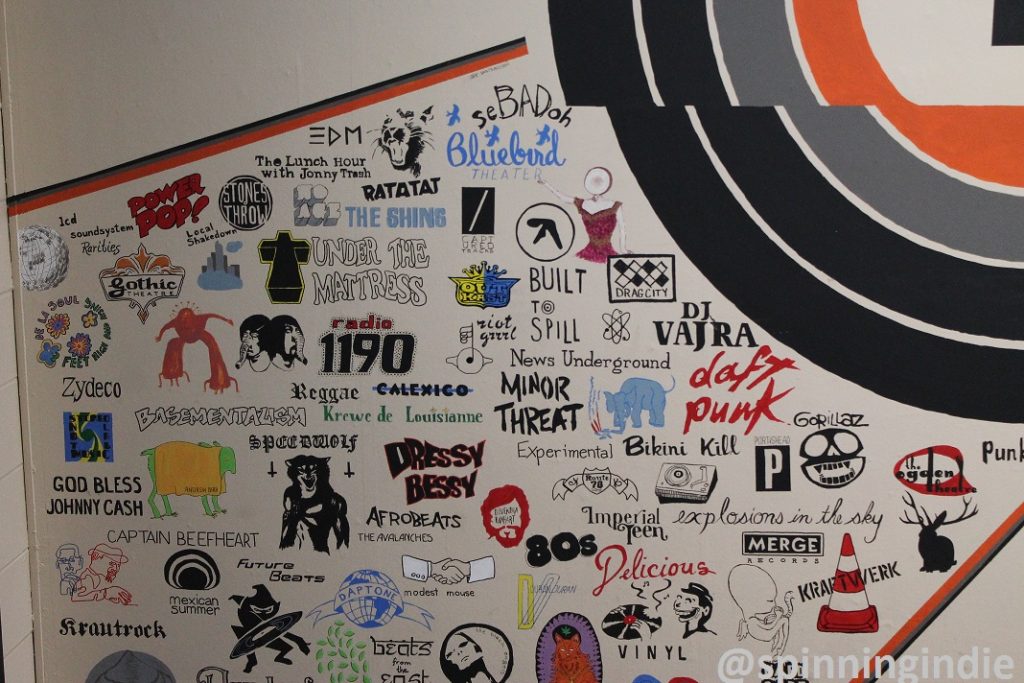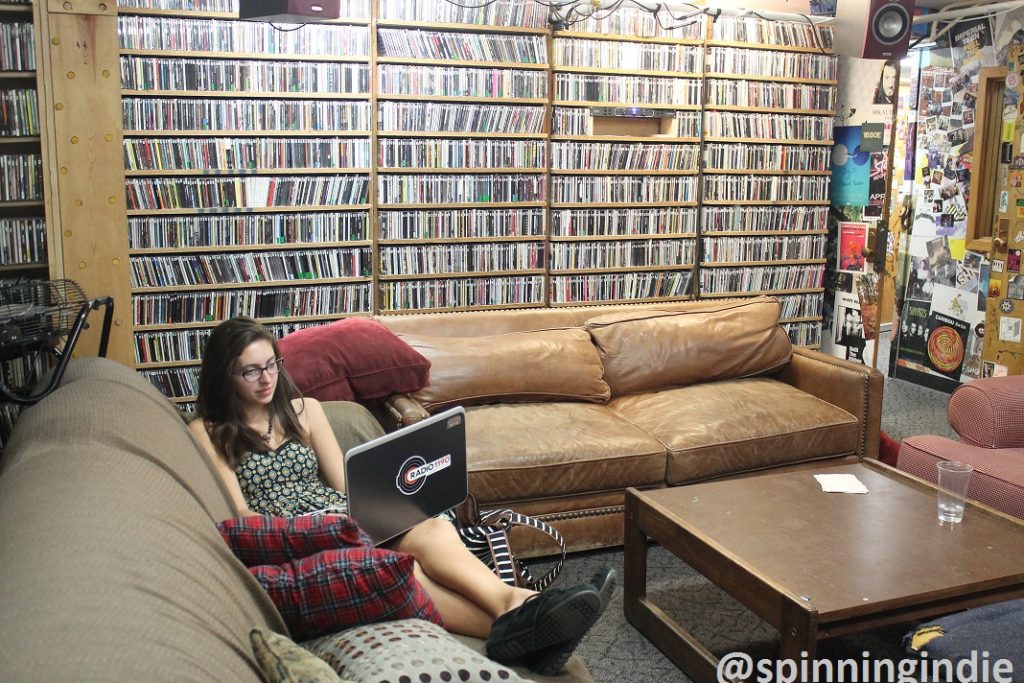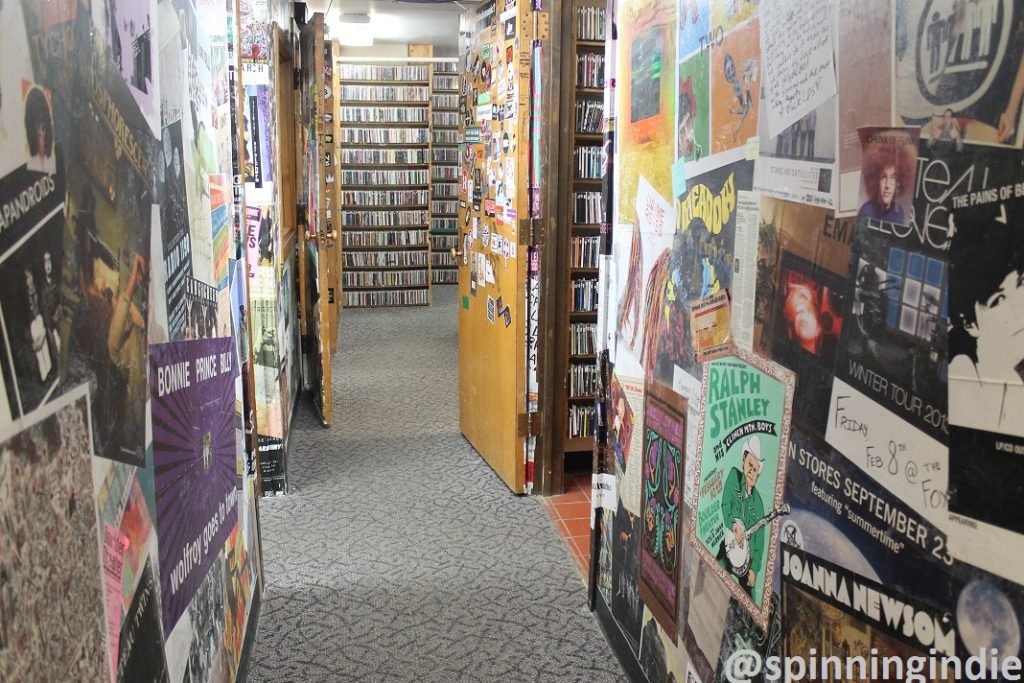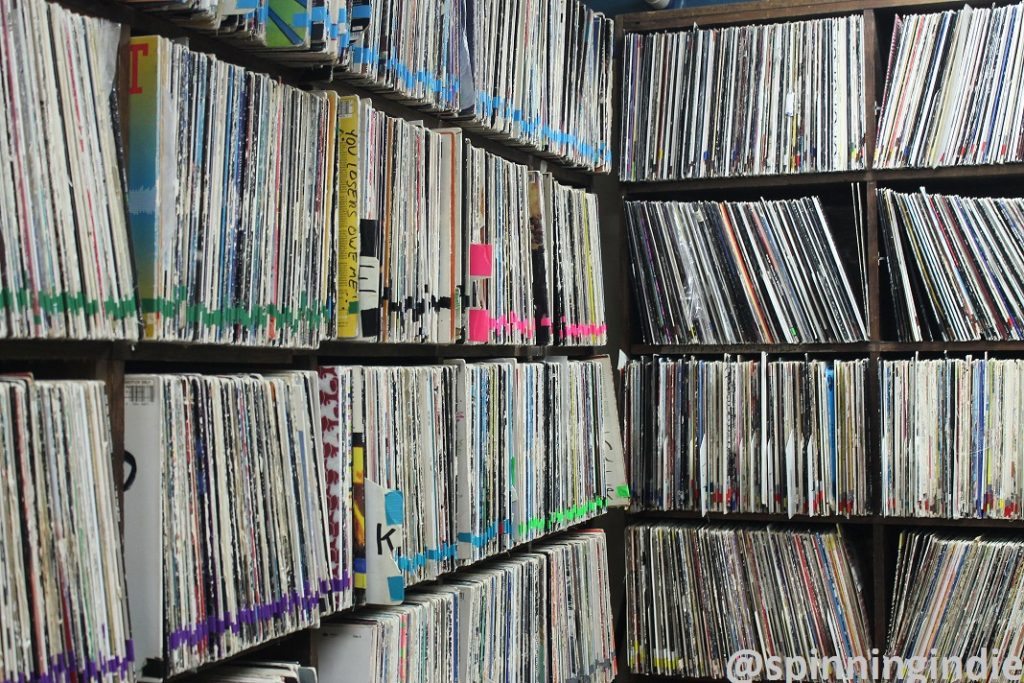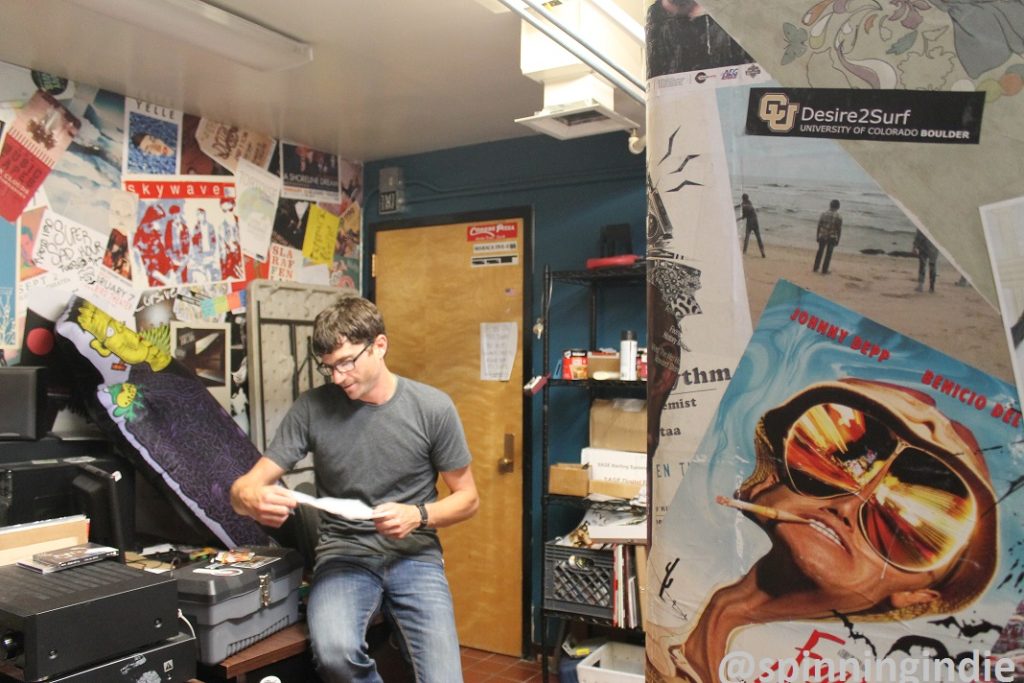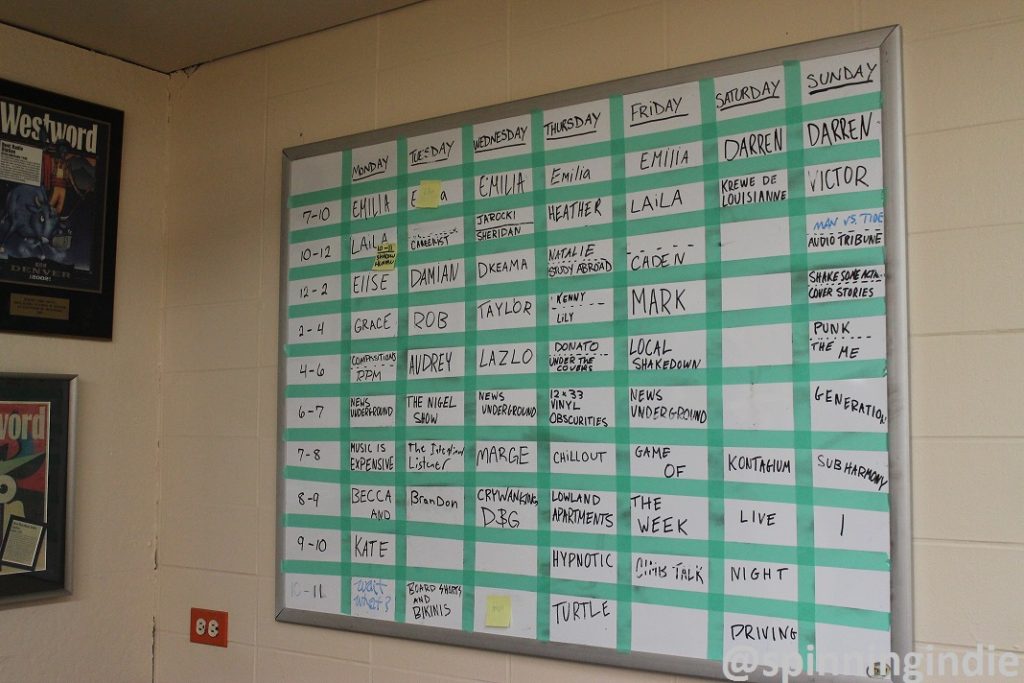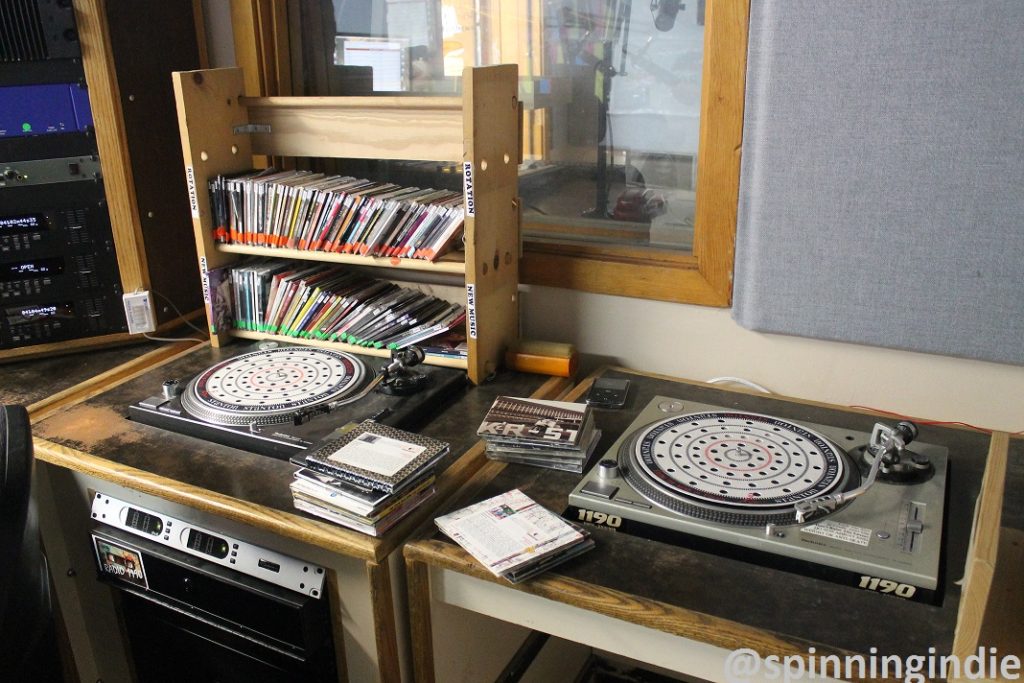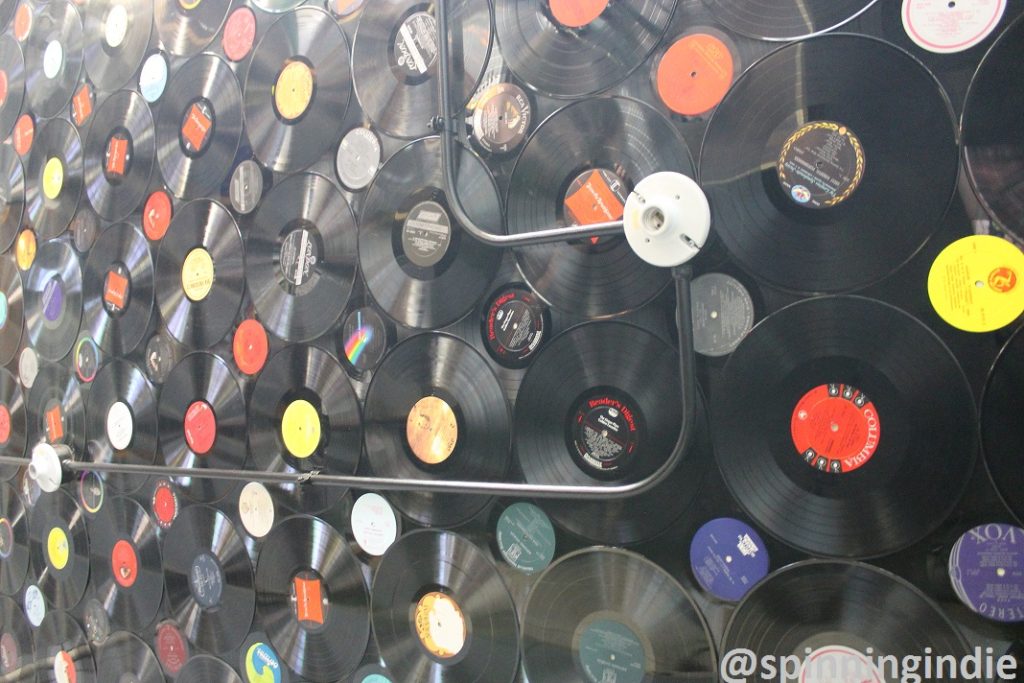University of Colorado, Boulder’s college radio station KVCU Radio 1190 was the next stop on my tour of Colorado radio stations a few weeks ago. On July 12, after my trip to KCSU in Fort Collins, I headed south to meet up with Radio 1190’s General Manager Mikey Goldenberg. The station’s only professional staff member, Goldenberg has a background in commercial radio. He’s supported by a staff of 8 paid student managers.
As a 10,000 watt AM station, KVCU has an enviable broadcast range and can be heard through much of the state. Goldenberg told me that the signal reaches as far north as Cheyenne, Wyoming and as far south as Colorado Springs. For that reason, I found myself tuning in to the station during many of my travels in Colorado. Radio 1190 hopes to reach even more listeners in the future with the addition of its FM translator at 98.9 FM in Boulder Valley.
When asked about the expansion into FM, Goldenberg told me that it “strengthened the legitimacy of all that we are doing,” explaining that “FM is something that people hold dear.” He added that “AM hindered us,” pointing out that sometimes its audio quality “is not very palatable.” With FM, he believes that it will “re-enliven” interest in KVCU. That’s not to say that Radio 1190 isn’t already an active station with engaged DJs and listeners. During the school year there are around 75 to 100 people involved with the station and Goldenberg describes the student and community members as a “pretty diverse group.”
I was interested to see that University of Colorado has a lengthy radio history, with the first licensed station on campus in 1922. According to Education’s Own Stations, the Electrical Engineering Department received that first license for station KFAJ and used the station “…almost entirely for experimental work by the Department of Electrical Engineering and as a means for instruction in radio communication.” See some anecdotes about those early years in a 1926 issue of The Colorado Engineer. In the 1924-25 school year, a variety of programs aired, including shows playing recorded music (on phonograph records), sporting events, concerts, lectures and educational programming. The license was allowed to expire in December, 1925 for a variety of reasons, including funding, lack of support and unavoidable interference from another radio station (KOA, which is still in existence today). Some educational programming from University of Colorado continued on over KOA in the following years.
Although it’s unclear if a student station was built in the following decades, University of Colorado is listed as a trial member of the Intercollegiate Broadcasting System as of November, 1942, indicating that a carrier current station was either in the planning stage or under construction. According to a Radio 1190 history website, efforts to bring student radio back to campus started in the 1970s at University of Colorado. Initially a satellite station for community radio station KGNU was built during the 1978-1979 school year. Several carrier current stations followed, including KAIR (by at least 1985) and student-run KUCB (in 1987). Throughout that time, there was interest in obtaining a terrestrial radio license and those efforts finally resulted in the acquisition of 1190 AM (the former KBCO license was donated by Jacor Communications), which went on the air in 1998.
Today, KVCU operates out of the basement of the University Memorial Center and is tucked away near the Ski and Snowboard Club office and a loading dock. Goldenberg told me that he was proud of Radio 1190s’s welcoming lobby, which looks like a professional radio station, complete with high-countered desk and fancy Radio 1190 sign. One wall has a hand-painted mural featuring artwork and logos from a wide range of record labels and bands.
Past the lobby is a familiar-looking college radio space: a record library/hang out area that is full of couches, colorfully decorated walls and shelves full of CDs. The on-air studio opens into that room and a hallway leads to some offices, a vinyl library, and production studio. A couple of offices, including Goldenberg’s, are just outside the main Radio 1190 space.
Programming runs 24 hours a day, 7 days a week, with live DJs and hosts from around 7am until 9-11pm-ish. Automation runs during late night hours. Summertime is a bit quieter, with maybe 25 station participants and during my visit I saw a handful of student managers and DJs working at the station, including an on-air DJ.
The music at Radio 1190 aligns closely with the CMJ charts and from 7am to 7pm during “rotation” shows about 70-80% of what the station plays is new music championed by CMJ subscribers. Additionally, DJs can take advantage of the station’s huge music library, which includes a large vinyl library of 10,000 records as well as 25,233 CDs at last count. Six songs per hour are programmed for DJs and the remainder of the hour is made up of DJ picks.
For Goldenberg, it’s important to provide students with a “great radio foundation” and a “real world” experience that will prepare them for future careers. He told me station alumni leave KVCU “equipped” for careers in radio, television and media and that some are now working in music, television, and media in general. Even though he’s serious about providing a solid learning experience at Radio 1190, Goldenberg added that, “We’re engaged in the fun aspect of radio.”
Although one must be a student to be a paid manager at Radio 1190, there are plenty of non-student DJs who are mostly hosting specialty shows. The range of programs includes shows focused on hip hop, spoken word, metal, electronic music, and a Louisiana-themed show. Bands play on Radio 1190’s “Local Shakedown” show every Friday and edited performance videos, KVCU Studio Sessions, can be viewed on the station’s website.
The station is devoted to new music and local music and Goldenberg said that they like putting up and coming artists on the air and enjoy promoting even the smallest house shows. More broadly, KVCU is a member of various radio organizations and has participated in College Radio Day, with Goldenberg serving on the College Radio Foundation’s Board of Directors.
In reflecting on the role of college radio, Goldenberg told me that he “loves the conversation that it affords,” telling me that it’s nice to not have to worry about the “bottom line.” Drawn to music and radio as an undergraduate, Goldenberg ended up working as the executive producer on a morning show in Denver for more than 6 years. Although he never did college radio when he was a student (also at CU-Boulder), the sights, sounds and smells of Radio 1190’s basement home bring back vivid memories. Now five years into his stint at KVCU, he seems to relish the opportunity to work with students and the campus community.
Thanks so much to Mikey Goldenberg for the tour of Radio 1190. This is my 110th radio station field trip report, with more to come from Colorado and Southern California. See my most recent field trips on Radio Survivor and see a full list of my station tour reports on Spinning Indie. September 13 Update: Hear more about my tour of Radio 1190 on Radio Survivor Podcast 63, which also includes audio from my interview with Goldenberg.

